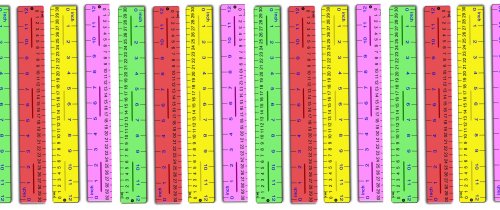Doctors use this technique to work out how much discomfort you might be in. You can use it too - it's called scaling questions.
Scaling questions may sound a bit odd the first time you use them. You might need to hold your nerve and keep quiet after you've asked one just so the other person (or yourself) has time to think things through and give an honest answer.
So how do they work? Imagine you've just asked someone if they agree with your proposal. They say "yes" but you're not convinced they mean it. Just ask:
"On a scale of on to five how much do you agree?"
and wait for the number they give you.
Or maybe you're trying a new skill and are feeling nervous. Ask yourself on a scale of 1 to 5 (or 1 to 100!) how nervous are you?
There is no easy way for a doctor to know the level of pain a patient is feeling. All they have to go on is the patient's own assessment. In gyms up and down the country personal trainers get their clients to work at "level 7" then push it up to "level 9". These measures are subjective but useful. In fact doctors refer to them as subjective units of distress.
So how does this help you? Well when the answer comes back - maybe "three" out of five" you know you have work to do.

The trick is not to focus on getting the highest score. The most important thing is to get a number. Once you have score you have something to work with.
The next question is the one that makes this technique powerful:
"What would make it a four?"
In other words you are looking for an improvement of just one point. Even half a point would be great! Surprisingly we all know what's needed to make an incremental improvement.
The scale can be bigger than five. Try one to ten or even a hundred. Whatever works best in the situation. The key is to set a frame of reference and to arrive at a number.
Use the same technique to review how things went, and what might make things better next time.
Scaling questions are a great way to build trust, confidence and motivation.

